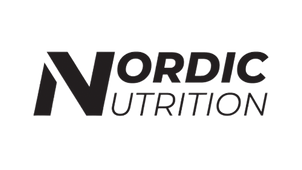Are you concerned about whether you can consume too much protein? At Nordic Nutrition, we have the answers that can guide you to the right balance in your diet. Protein is essential for bodily functions, but as with anything, it's crucial to maintain a healthy equilibrium.
Benefits of protein
Protein is known to promote muscle building, support weight loss, and enhance overall health. But is there a limit to how much you should intake? Our experts explore this question and provide valuable insight into how to maximize the benefits without exceeding limits.
Why is protein important?
Protein is crucial for the body's functions and plays a vital role in maintaining a healthy and well-functioning organism. Here are some of the important reasons why protein is essential:
Muscle building and maintenance: Protein is essential for building and maintaining muscle mass. It contains amino acids, which are the building blocks for muscles.
Cell repair and maintenance: Proteins play a central role in repairing and maintaining cells throughout the body. This is important for wound healing and tissue regeneration.
Enzymes and hormones: Many enzymes and hormones in the body are proteins. These chemical messengers regulate various physiological processes, including metabolism, the immune system, and growth.
Immune system function: Some proteins are crucial for the functioning of the immune system, acting as antibodies to help combat infections and diseases.
Nutrient transport: Proteins are involved in the transport of nutrients such as oxygen, vitamins, and minerals through the bloodstream to cells, organs, and tissues.
Energy: While carbohydrates are the body's primary energy source, proteins can also be used as an energy source, especially during periods of fasting or intense physical activity.
Weight control: Proteins have a satiating effect, meaning they can help reduce hunger and maintain a feeling of fullness, which can be beneficial for weight control and weight loss.
Since the body cannot store protein in the same way as fat or carbohydrates, it is important to include adequate amounts of protein in the diet to maintain optimal health and function. However, for most people, it is crucial to maintain a balance in protein intake and avoid excessive consumption.
Risks of excessive protein
Too much protein can potentially affect the kidneys and the digestive system. Our specialists will help you understand how to avoid these risks and create a sustainable diet plan that suits your individual needs.
Can too much protein be harmful?
Yes, consuming too much protein can potentially be harmful for certain individuals and under specific circumstances. While protein is essential for the body's functions, it is crucial to maintain a balance in intake. Some potential risks of excessive protein consumption include:
Kidney strain: High protein intake can put extra strain on the kidneys, especially in individuals with existing kidney problems.
Digestive issues: For some people, large amounts of protein can lead to digestive problems such as constipation or diarrhea.
Dehydration: Protein digestion requires more water than other nutrients, so excessive intake without sufficient fluid intake can lead to dehydration.
Increased risk of chronic diseases: Some studies suggest that very high protein intake, especially from animal sources, may be associated with an increased risk of certain chronic diseases such as cardiovascular diseases.
H2: Our protein products:
At Nordic Nutrition, we offer a wide range of various protein products. All our products are of the highest quality. You can find items such as protein powder, protein smoothies, protein drinks, and much more.





